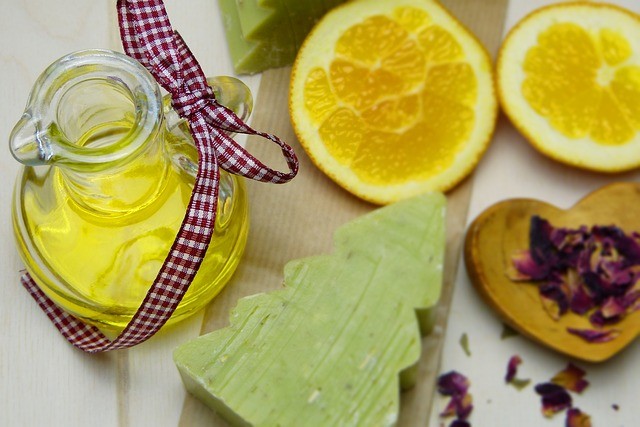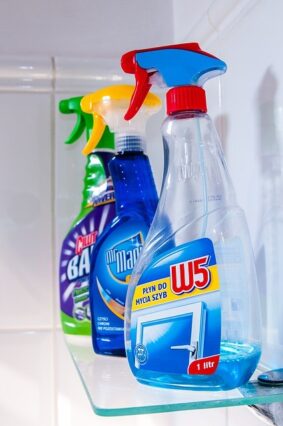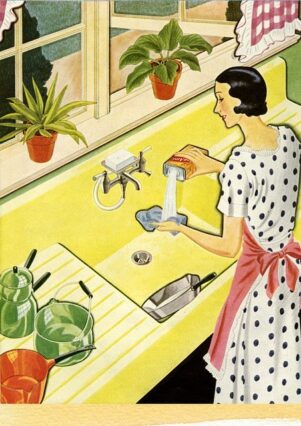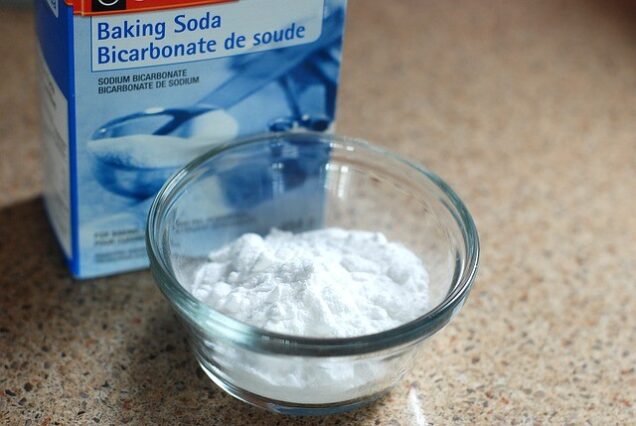Remember those homemade cleaning products your grandmother used to swear by? Natural cleaning products are making a big comeback, and its easy to see why. They are better for your health, the environment and your pocket!

By using natural cleaning products, you’re safeguarding your own well-being and that of your family, but also contributing to a healthier planet by reducing the harmful toxins and pollutants that can harm ecosystems.
Plus, the cost-effectiveness of many natural cleaning solutions means you can enjoy the benefits of a clean and green home without breaking the bank. So, join the movement and rediscover the cleaning secrets that have been cherished for generations!
This lack of transparency in the cleaning product industry is concerning for consumers who want to make informed choices about the products they bring into their homes.
Avoiding Harmful Chemicals in Household Cleaners

Dangerous substances found in household cleaners include corrosives, ammonia and more. The ambiguity in labeling can make it difficult to identify potential allergens, irritants, or even carcinogens hidden within these seemingly innocuous bottles.
One of the worrying things about cleaning products is that manufacturers are not legally required to disclose ingredients, rather they just state whether it if harmful to eyes, must not be swallowed, etc.
Often we just see words like ‘WARNING’ and ‘TOXIC’ on labels, and we have no idea what harmful substances are lurking in our most used cleaning products.
As consumers become increasingly aware of the potential health risks associated with these undisclosed ingredients, the demand for transparency and safer alternatives continues to grow.
The Health Risks of Cleaning Products
Cleaning products contain some of the most potent toxic chemicals in the home. A build-up of these chemicals pose a risk to health. Toxic chemicals have been linked with a variety of health conditions.
Chronic symptoms like rashes, coughs, sneezes, headaches and migraines, could be attributed to chemicals in household cleaning products.
Children and pets are more at risk of being exposed to chemicals in the home than adults. There are numerous trips to hospitals each year through children ingesting cleaning products they have found. Using natural cleaning products means children who are exposed to them are safe.
Using natural cleaning products improves the air quality of your home, as no harmful VOC’s are released when used.
Why Are Cleaning Products Bad for the Environment?
The environmental impact the manufacturing of cleaning products is also hefty. They often use ingredients that are non-biodegradable and from non-renewable sources such as petroleum.
Then there’s the secondary effects once you wash them down the sink, where they eventually find their way into other water systems and create an unpleasant environment for animals and wildlife.
Simplify Your Cleaning Routine with Homemade Cleaners

Think of all the adverts we see for cleaning products… its staggering. But that’s advertising for you, persuading people they need to buy one cleaner for this, another cleaner for that.
Really though, to keep our home clean, fresh and free of harmful bacteria, we only need a few types of cleaner.
- An all-purpose natural cleaning spray
- A natural cleaner for glass
- A natural cleaner for wood
- Another natural cleaner to disinfect.
There’s some recipes below to show you how to make natural cleaning products, but first…
Do Natural Cleaning Products Really Work?
In short, yes!
But what about the fresh smell? Using natural cleaning products does not leave a strong scent like other household cleaners. If you like a strong scent to make your home feel fresher, you can mix essential oils in for fragrance.
Here are a list of safe, non-toxic ingredients that make excellent household cleaners.
Vinegar – great for removing mould and mildew, cleaning toilets, windows and much more. The smell of vinegar disappears once dry, so your home won’t smell like a chip shop! What makes vinegar work like magic is acetic acid, which makes it hard for micro-organisms to survive. Studies have shown vinegar to be effective at killing E.coli. (See PubMed Source)
Bicarbonate of soda – this powder is mostly used in baking, but it is also an effective natural cleaner. It can be added to cleaning solutions to provide a gentle abrasive to help lift stains, use it on soft furnishings and carpets as a deodoriser, or use it to clean your oven!

Hydrogen peroxide – this is a common solution that can be bought in varying strengths. A 3% strength hydrogen peroxide solution has lots of medical uses in the home, from dabbing onto cuts and stings, to using as a mouthwash for sore throats. It is also an excellent natural cleaner and disinfectant, getting rid of mould, mildew and bacteria.
Citrus – citrus peels can be infused in distilled vinegar and be uses as a cleaning solution. Lemon juice can be used to cleaning wooden chopping boards, and metals like brass and copper. Lemon juice with salt is good at getting stains out of fabrics.
Homemade Natural Cleaning Product Recipes
To make your own natural cleaning solutions for your home, you will need some of the ingredients listed above. The good news is that they are much cheaper than buying the equivalent in cleaning products, and if you buy in bulk you can save even more. Another great item to have is a few spray bottles, making using and storing your homemade cleaners a breeze.
How to Make a Natural Cleaning Spray
A natural all-purpose cleaner can be used to clean any hard surfaces in the home. Use it in the kitchen, bathroom, living-room… if somethings looking grubby, a spritz and a wipe is all it need. A good all-purpose cleaner spray can be made using:
- 2 cups of water
- 1 cup of distilled vinegar
- 15 drops of essential oil – tea-tree oil gives it antibacterial properties and a menthol fresh smell. Or opt for a crisp lemon essential oil.
For a deep clean and disinfect, make a spray with hydrogen peroxide solution. Remember to keep it in a dark bottle, like the one it comes in, as it reacts to light and can lose its potency. You can add essential oils to the hydrogen peroxide for a nice smell.
Note: if using essential oils, mix solutions in glass bottles. Some essential oils can degrade plastic, causing it to leach into your natural cleaning product. You don’t want to be spreading compounds from plastic around your home, so opt for glass when using essential oils.
How to Make Natural Polish for Wood
- 1 cup olive oil
- ¼ cup distilled vinegar
- 30 drops of essential oils, for fragrance.
Store this mixture in a bottle or spray and wipe over wooden surfaces for a clean shine.
How to Make a Natural Glass Cleaner
Cleaning glass couldn’t be simpler. Create a solution that is half distilled white vinegar and half water, and you’re good to go! Spray onto glass and mirrors for a streak free, clean finish.
Natural cleaning products are quick to make, provide effective cleaning power and they are also inexpensive. Why not give them a try?
